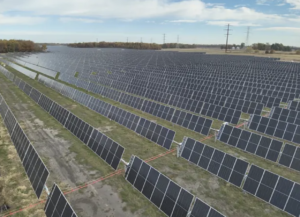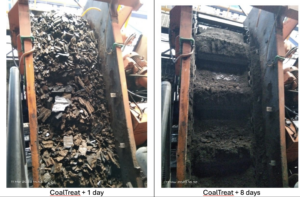Georgia Attorney General Sam Olens on Thursday filed suit against the Environmental Protection Agency’s (EPA’s) Cross-State Air Pollution Rule (CSAPR), which was finalized by the EPA this summer. On Monday, Xcel Energy also filed suit against the EPA, asking the agency to reconsider its methodology for calculating allowable emissions.
AG: CSAPR Would Have Severe Economic Repercussions in Georgia
Georgia joins a growing list of states challenging the rule, including Kansas, Texas, Nebraska, Alabama, Florida, Oklahoma, South Carolina, and Virginia.
Olens, who filed the suit in the District of Columbia Circuit Court of Appeals, said the “job-stifling regulation . . . will likely have severe economic repercussions on Georgia citizens and businesses if implemented.” The rule requires “draconian reductions” in certain emissions in a limited period of time, and it would cause major changes in the way power is produced in the state starting Jan. 1, 2012, when it goes into effect, he said. He also alleged that the rule puts Georgia at a disadvantage relative to neighboring states by giving other states far more emission credits.
The EPA said Thursday it was easing the Cross State Air Pollution Rule (see the top story), released in July, for 10 states—but Georgia is not one of them.
“The Cross-State Air Pollution Rule gives Georgia only five months to essentially overhaul the way electricity is generated in our state,” Olens said. “The EPA has overstepped their authority with a heavy-handed federal takeover of the enforcement of environmental regulations. More significantly, implementation of the rule will be extremely damaging to our already struggling economy.
“This new rule will disproportionately harm Georgia—the federal government should not be in the business of picking winners and losers.”
Georgia Public Service Commission Chairman Stan Wise last week told the U.S. House Energy and Commerce Committee that “From the proposed [CSAPR] rule to the final rule, there were very significant changes. For Georgia, the state lost substantial emissions allowances (thus making it harder for the state to comply). Thus […] any actions taken by the utilities in Georgia based on the proposed rule would have likely been inadequate.”
Xcel: EPA Did Not Credit Xcel with Early Actions to Reduce Plant Emissions
On Monday, Xcel Energy subsidiary Northern States Power Co.-Minnesota also filed a petition with the District of Columbia Circuit Court of Appeals, asking the court to review the CSAPR. Xcel said it had asked the EPA to reconsider its methodology for calculating allowable emissions for plants complying with the rule.
The utility is challenging the CSAPR on the specific issue that “the EPA failed to give credit for the early actions Xcel Energy took to reduce emissions from its High Bridge and Riverside power plants under the Metro Emissions Reduction Project (MERP),” the company said. High Bridge and Riverside were constructed and operated as coal plants since before 1925. The utility repowered these power plants to natural gas in 2008 and 2009, respectively, resulting in reductions of about 95% in emissions of SO2 and NOx. (High Bridge was a POWER Top Plant in 2008; the Riverside Repowering Project was a 2009 Top Plant.)
“The rule must be changed to allow our customers to realize the benefit of the early actions we took on their behalf,” said Judy Poferl, president and CEO of NSP-MN. “The Riverside and High Bridge retrofits cost-effectively modernized two aging power plants while achieving significant reductions in all emissions.
“Such early actions must be correctly treated, not penalized. Revising the rule will not only avoid unwarranted costs of compliance with CSAPR, but also will ensure proper treatment of early action under the many other new environmental regulations anticipated to take effect in the future,” said Poferl.
Sources: POWERnews, Georgia Attorney General’s Office , Xcel Energy, POWER








